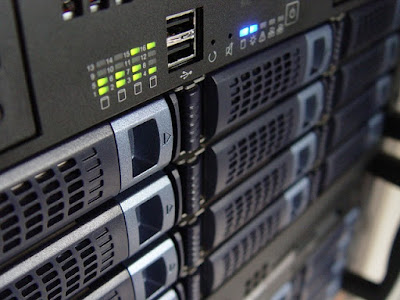If you are fresher as a Server or System Administrator then you must be wondering and looking out exactly to what do we need to monitor. To that question or query, the answer will be that it depends on the application that the server is operating so there are going to be mission critical services that you have to monitor 24/7. There are few applications that will need built-in Operating System services to run in addition to the services and some will need their own services. Set of basic components will be monitored regardless of what application the server is operating.
Monitor Central Processing Unit:
The CPU is the main component of the Server Hardware. The Central Processing Unit is the part of the computer System that will perform certain instruction of the computer program to carry out the basic arithmetical, input/output and logical operations of the system. CPU system that has tabbed onto 100 percent for several minutes or hours indicates that it is an unhappy server. This means that the server will be no longer to fulfill additional request even though if there are mission critical or not. You have to either add more CPU’s, upgrade or shut down the non-serious services that are controlling the critical resources. There is no certain number that the CPU usage should be certain in a particular way but if the CPU is 75 % or higher then you adopt one of the suggested steps mentioned above.
Monitor Random Access Memory:
RAM is a part of data storage where the server can upload the data needed by specific applications into RAM for faster access thereby enhancing the overall performance of the application. RAM is a flash-based storage and it is faster compared to the slower hard disk. If the RAM runs out on the server then it configures a part of the hard drive as the virtual memory and space is reserved for CPU usage. This is mainly called swapping which degrades the performance because the hard drive is much slower than RAM. The overall performance of the server degrades when swapping is done because it contributes to file system fragmentation. If the RAM is full or rising then try adding more RAM because that is a cheap way to boost the performance of the server.
Monitor Hard Disk:
Hard Disk is where the server utilizes to store data which it includes several rigid rotating disks that are coated with a magnetic material with magnetic heads organized to read and write from the platter or disc. The data stored is permanent so even though if there is a reboot it will survive unlike RAM and it is also non-volatile which is available till the time the owner consciously erased by the end user. It is essential to monitor the hard disk because the operating system requires space on the disk for normal operating processes that consists certain caches including the paging files. The application operating on the server will also require space to write temporary data to cache for productive operation and the data that will be accessed by the user. Sometimes there is overload on the usage of hard disk because of multiple functions performed. So that incurs overload on the hard disk which will reduce the free space on the drive which is one of the reasons for file system fragmentation which causes performance issues.
Hardware Issues and Performance:
The Hardware components that must be monitored are CPU Fan, Power Supply, Temperature, Environmental, CPU Hardware status, CMOS Battery, Chassis intrusion detection and Disk array health. You will need to check the CPU Fan because it cools down the server by expelling the head so if it fails then it will overheat the server by causing serious damage. You will need to monitor the wattage, amperage, and voltage of the power supply because the Power supply unit transforms the AC to low voltage that regulates the DC power for the internal component of the system. There are many other factors that have to be monitored so that any error can be prevented.





%20(1).png)
another source for CMOS. thank you.
ReplyDelete